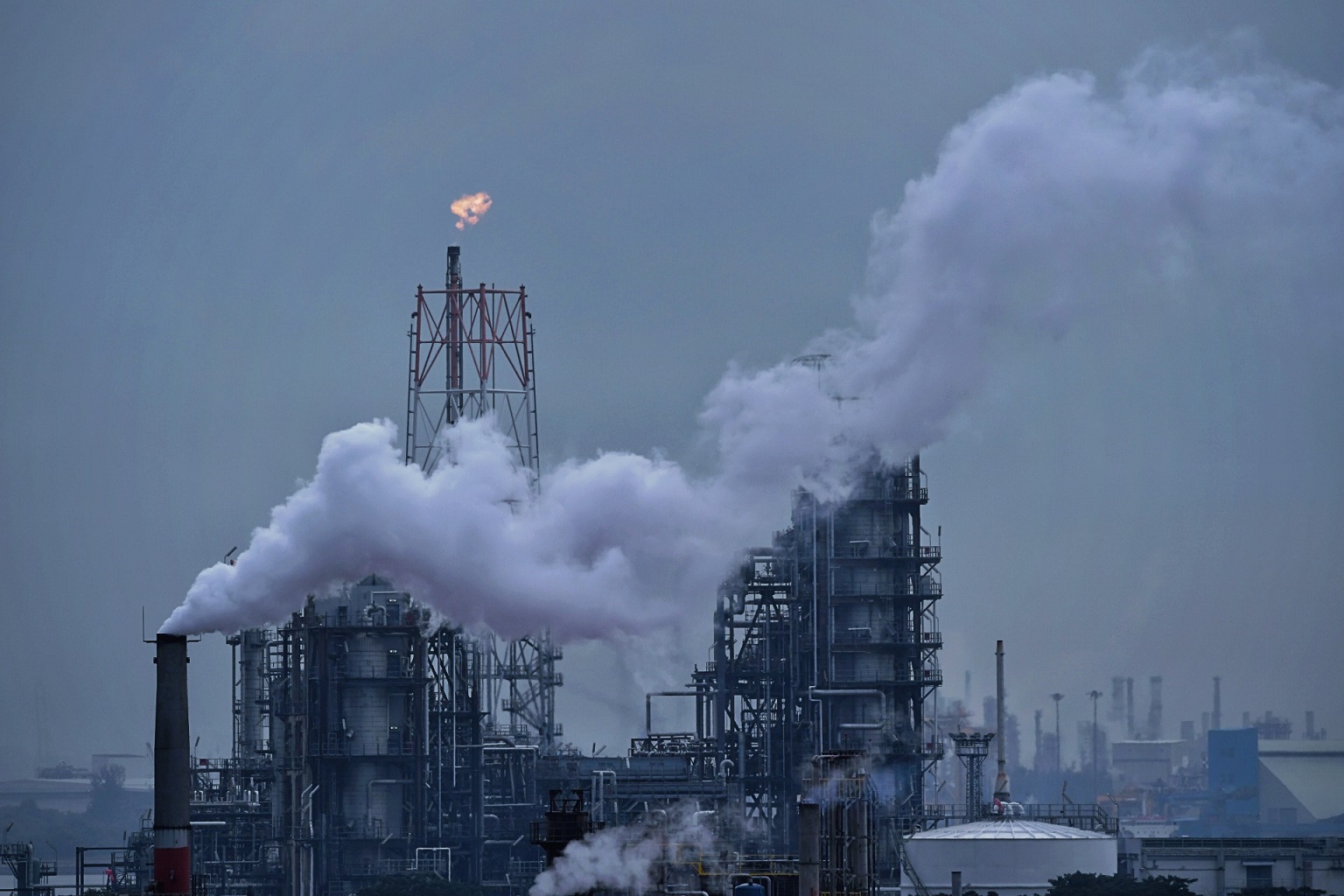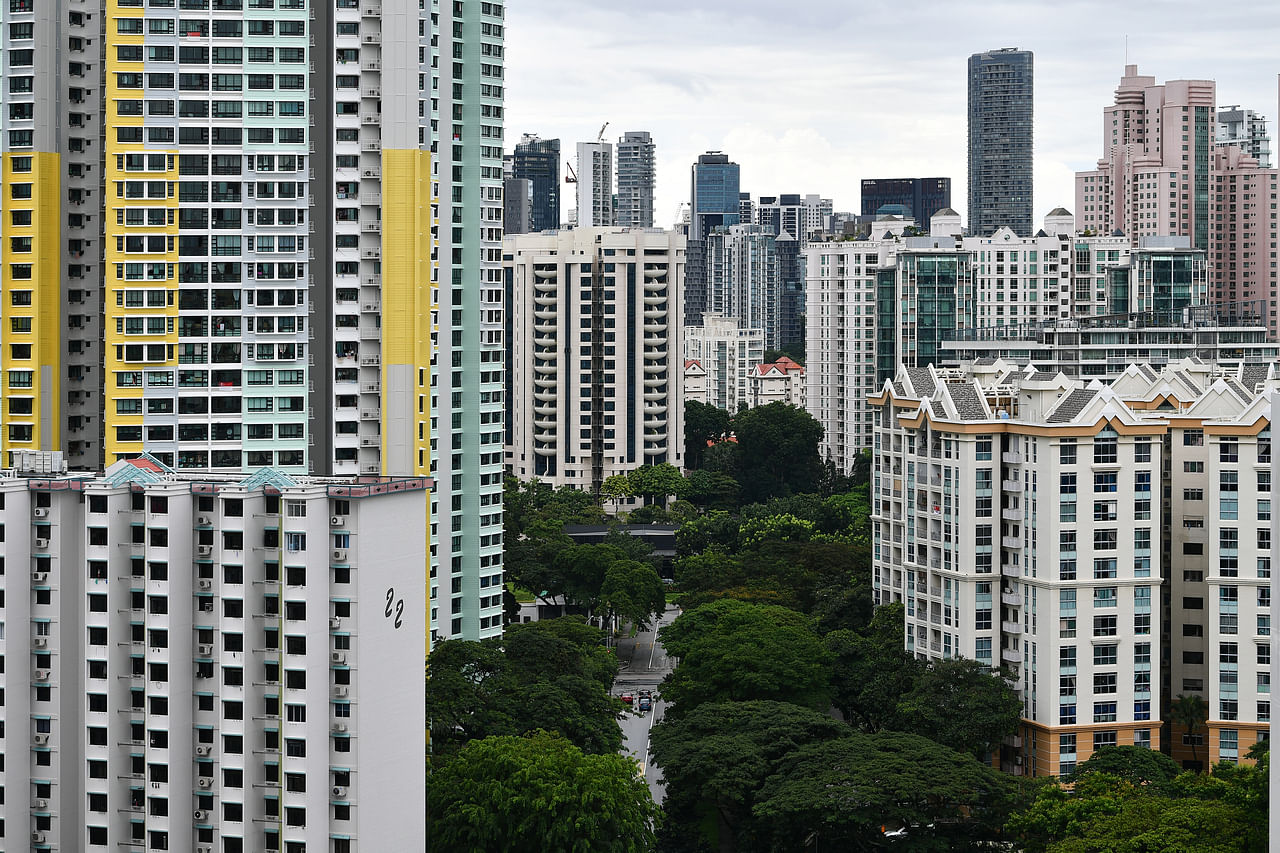S'pore's revised carbon tax rate for 2024 to be announced in Budget 2022: Lawrence Wong
Sign up now: Get ST's newsletters delivered to your inbox

Finance Minister Lawrence Wong said Singapore's carbon price today is too low and its carbon tax needs reviewing.
ST PHOTO: KUA CHEE SIONG
Follow topic:
SINGAPORE - Singapore's revised carbon tax rate for 2024 will be announced in next year's Budget, which will also indicate what to expect up to 2030.
Speaking at the 35th Singapore Economic Roundtable on Friday (Oct 15), Finance Minister Lawrence Wong said the Republic's carbon price today is too low.
This is why the Government is reviewing the level and trajectory of its carbon tax, so that it reflects the cost of carbon and influences investment decisions effectively, he said.
And as it introduces higher carbon taxes, it will also enhance U-save rebates to help lower- and middle-income households with the transition, Mr Wong added.
Singapore was the first South-east Asian nation to introduce a carbon tax in 2019, but its rate of $5 per tonne is considered to be on the low end of the spectrum.
Mr Wong said the carbon price is a key lever for the green transition of Singapore's economy, and the Government is mindful that businesses will need predictability and time to adjust.
The most promising options today are clean hydrogen and carbon capture, but these technologies are not available for immediate deployment. And that is why Singapore is investing heavily in research and development, he said.
"Importing green electricity can help, but surely we don't want to import 100 per cent of our electricity. There are limits to importing power - there are technical issues, there are energy security issues as well."
He added that the sustainable and responsible way to fund recurrent expenditures is to raise tax revenue.
Healthcare in Singapore alone will demand an additional 3 per cent of gross domestic product in spending over the next 10 years, not to mention investments to reduce emissions, provide quality education and maintain security.
"Totalled up, our needs are significant and growing. Some of these can be borne through income taxes. But, with rapid ageing, it will not be sustainable and will make it hard for our working population."
This is key to understanding why the Government is looking to increase the goods and services tax (GST), he said. It is a tax on final consumption and helps to smoothen the burden of taxation across the entire population young and old, and includes tourists and foreigners when they spend money here.
The Government announced plans to raise the GST rate from 7 per cent to 9 per cent in Budget 2018, and said in Budget 2020 that it would also roll out a $6 billion Assurance Package to cushion the impact of the hike on lower- and middle-income households. It also announced in Budget 2021 that the hike will take place between next year and 2025, but sooner rather than later, subject to the economic outlook.
On Friday, Mr Wong said Singapore is not alone in raising GST - the GST or value-added tax (VAT) is now central to tax systems around the world, and most jurisdictions have much higher GST or VAT rates than Singapore.
As the Republic considers different ways to raise more revenue, it must continue to uphold a fair and progressive system tax system, he added.
Some people object to certain tax increases because they are regressive and disproportionately impact the lower-income. But these concerns are not so applicable in Singapore's context, he explained, as it works very hard to mitigate the impact of specific tax components, especially for the vulnerable.
"For example, our GST is tied to a permanent GST Voucher Scheme to defray the tax burden for lower- and middle-income households. When we raise the GST rate, we will also enhance these permanent GST vouchers."
What is more important is not to look at individual tax items, but to consider the taxes and transfers system as a whole, the minister added, noting that Singapore has always maintained a high level of transfers to the lowest income households.

<p>ST20210711-202143037961-Lim Yaohui-pixgeneric/</p> <p>HDB flats and condominiums as viewed from Boon Tiong Road on July 11, 2021.</p> <p>Can be used for stories on housing, marriage, fertility, BTO, manpower, population, land, economy, money, economy, and development.</p> <p>(ST PHOTO: LIM YAOHUI)</p>
PHOTO: ST
Households in the bottom 20 per cent income bracket receive about $4 in benefits for every dollar of tax paid. For middle-income households, the ratio is around 1:2; whereas for households in the top 20 per cent of income, for every dollar of tax paid, they receive 30 cents in benefits.
"Our taxes and transfers system today is progressive, and we will keep it that way. For the middle-income, we maintain a low tax burden so that they can enjoy the rewards of their hard work and have the freedom of choice in their expenditures."
Mr Wong added that Singapore has kept its public expenditure lean yet effective, and that is why half of its working population do not have to pay personal income taxes, and GST rates are where they are today.
"Going forward, we will need to raise revenue to fund our additional expenditure. But we will move forward carefully, to make sure that overall public spending remains effective, and that taxes remain as low as possible for the middle class."
Another element of progressivity, he said, is to consider not just a person's income but his wealth, and those who are more affluent should pay their fair share of taxes.
Singapore, he stressed, already taxes wealth in various forms - via property tax and stamp duties on residential properties, and via additional registration fees on motor vehicles.
Singapore has also been able to mitigate some of the divergence in wealth seen in other places through its home ownership policy, he added.
Heavy public housing subsidies have allowed a whole spectrum of home owners, including the lower income, to gain from the appreciation in home prices and equity.
Singapore's policies should continue to promote broad-based wealth accumulation among Singaporeans. But just as it has tempered income inequality over the years,it also needs to guard against rising wealth inequality, he said.
"That is why we continue to study options to expand our system of wealth taxes - in ways that are effective and add to our revenue resilience without undermining our overall competitiveness."
And with an increasingly mobile tax base, deeper international cooperation is needed, said Mr Wong.
"Every country should be free to set its own tax rate. But with mobility of capital and talent, taxes are no longer purely domestic issues," he added.
"This is why there is a need for enhanced international coordination on tax matters and international tax standards... It is important for us to have a seat at the table, and to shape the evolving rules on international taxation."

